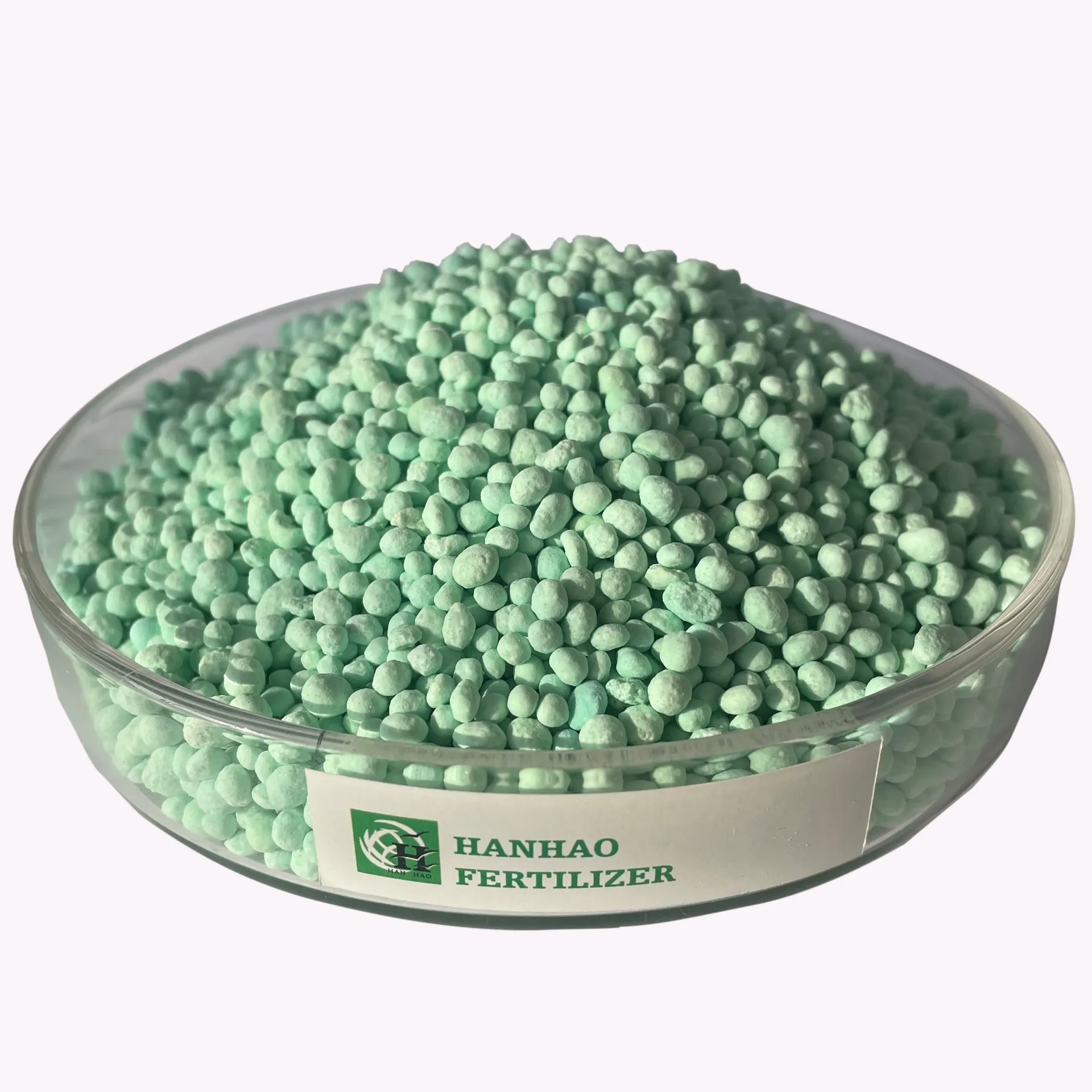
Mar . 04, 2025 11:32 Back to list
Organic Fertilizer Companies
As the global agricultural sector faces increasing pressure to meet food demands while maintaining environmental sustainability, the role of fertilizers has never been more critical. Sustainable farming practices, such as the use of organic fertilizers and efficient nutrient delivery systems, are gaining popularity. In this article, we will explore the key players in the fertilizer industry, from organic fertilizer companies to nitrogen fertilizer manufacturers, and how they contribute to a more sustainable future for agriculture.

The Role of Organic Fertilizer Companies in Sustainable Agriculture
Organic fertilizer companies are revolutionizing the way farmers approach soil health and crop production. Unlike conventional synthetic fertilizers, organic fertilizers are derived from natural sources such as compost, animal manure, and plant-based materials. These fertilizers improve soil structure, increase microbial activity, and enhance the nutrient-holding capacity of the soil.
With an increased demand for organic food and environmentally conscious farming practices, organic fertilizers have become a go-to solution for many farmers. These fertilizers not only provide essential nutrients like nitrogen, phosphorus, and potassium but also offer a sustainable alternative to harmful chemical inputs. Organic fertilizer companies are at the forefront of producing innovative solutions that are both effective and eco-friendly.
Moreover, organic fertilizers play a key role in combating soil degradation, which is a pressing issue in many parts of the world. By promoting long-term soil health and reducing the need for chemical interventions, organic fertilizers help ensure the future viability of farming ecosystems.
Nitrogen Fertilizer Manufacturers: Meeting Global Nutrient Demands
Nitrogen is one of the most crucial nutrients required for plant growth, making nitrogen fertilizer manufacturers a pivotal part of the agricultural supply chain. Nitrogen-based fertilizers are essential for promoting healthy crop growth, particularly in nitrogen-deficient soils. These fertilizers are used extensively for high-yield crops like corn, wheat, and rice.
Nitrogen fertilizer manufacturers produce a variety of nitrogen-based fertilizers, including urea, ammonium nitrate, and ammonium sulfate. These products supply plants with a readily available form of nitrogen that is essential for photosynthesis and protein synthesis. However, the use of nitrogen fertilizers has raised concerns over environmental pollution, such as the release of nitrous oxide, a potent greenhouse gas.
To address these concerns, nitrogen fertilizer manufacturers are investing in more efficient and sustainable production methods. This includes the development of slow-release fertilizers that reduce nitrogen runoff and the incorporation of technologies that enhance nutrient uptake by plants. As the demand for food continues to grow, these manufacturers are working hard to balance productivity with sustainability.
The Importance of NPK Fertilizer in Modern Agriculture: Manufacture of NPK Fertilizer
The manufacture of NPK fertilizer—a compound fertilizer that contains nitrogen (N), phosphorus (P), and potassium (K)—is a cornerstone of modern agricultural practices. These three primary nutrients are essential for plant health, promoting everything from root development to disease resistance.
NPK fertilizers are especially popular for their balanced nutrient profile, allowing farmers to cater to the specific needs of different crops and soil types. The manufacture of NPK fertilizer involves precise blending of these nutrients, ensuring that plants receive the ideal combination for optimal growth. This is particularly important in regions where soil is naturally deficient in one or more of these key elements.
The global market for NPK fertilizers continues to grow as farmers seek more efficient ways to increase crop yields. With advances in fertilizer technology, manufacturers are able to offer fertilizers that are more tailored to specific agricultural needs, such as different formulations for vegetables, fruits, and grains. Additionally, innovations in slow-release technology are making NPK fertilizers more environmentally friendly by reducing nutrient leaching and runoff.
Humic Acid Factory: A Key Player in Soil Enhancement
A Humic acid factory is responsible for the production of humic substances, which are organic compounds derived from the decomposition of plant and animal matter. These substances play a vital role in improving soil structure and fertility, enhancing plant nutrient uptake, and promoting microbial activity.
Humic acids are highly valued by farmers and agriculturalists for their ability to improve the water-holding capacity of soils, increase the availability of nutrients, and support plant growth, especially in less-than-ideal soil conditions. As environmental concerns rise and more emphasis is placed on sustainable farming, humic acids have become an essential component of organic and eco-friendly fertilizers.
The humic acid factory produces a variety of humic acid products, including liquid and granular forms, that can be easily applied to soil or directly to plants. These products are often used in combination with other fertilizers to boost their effectiveness and to provide a holistic approach to soil management. By using humic acid products, farmers can increase soil productivity while minimizing the need for synthetic chemicals, making them a key part of sustainable farming practices.
A Greener Future for Agriculture
As the agricultural sector moves toward more sustainable practices, organic fertilizer companies, nitrogen fertilizer manufacturers, the manufacture of NPK fertilizer, and humic acid factories are all contributing to a greener, more efficient future. By producing fertilizers that not only boost crop yields but also promote soil health, these industries are helping to meet the growing demand for food while reducing the environmental impact of farming.
With innovation and sustainability at the core of their operations, these key players in the fertilizer industry are well-positioned to support the future of agriculture. Whether through the promotion of organic farming, the efficient use of nitrogen, or the enhancement of soil with NPK and humic acid-based solutions, they are paving the way for a more sustainable and productive global food system.
-
Organic Pepper Fertilizer – Sustainable Growth for Healthier Crops and Soils
NewsNov.25,2025
-
Sustainable Growth with Organic Phosphate Fertilizer | Benefits & Innovations
NewsNov.24,2025
-
Organic Phosphorus and Potassium Fertilizer: Sustainable Soil Nutrition & Global Impact
NewsNov.24,2025
-
Organic Phosphorus Fertilizer: Sustainable Nutrient Solutions for Modern Agriculture
NewsNov.23,2025
-
Sustainable Growth with Organic Phosphorus Plant Fertilizer | HH Fertilizer
NewsNov.23,2025
-
Organic Plant Meal Fertilizer for Sustainable Agriculture – Benefits & Innovations
NewsNov.22,2025
